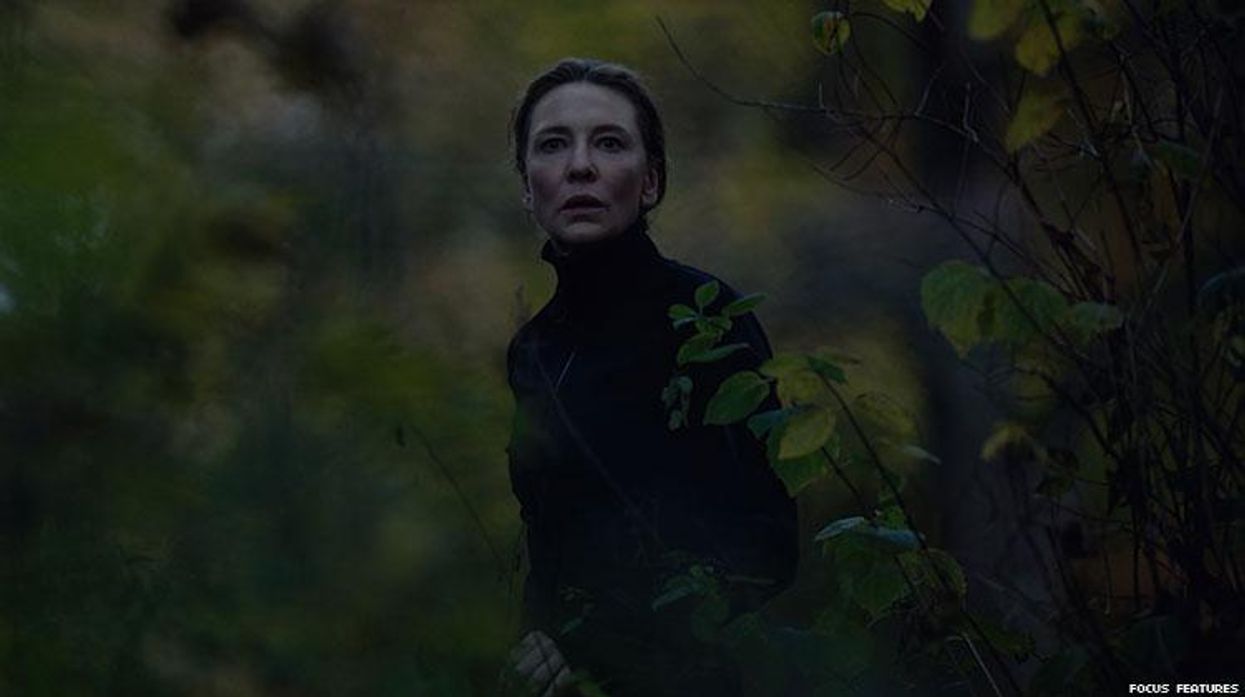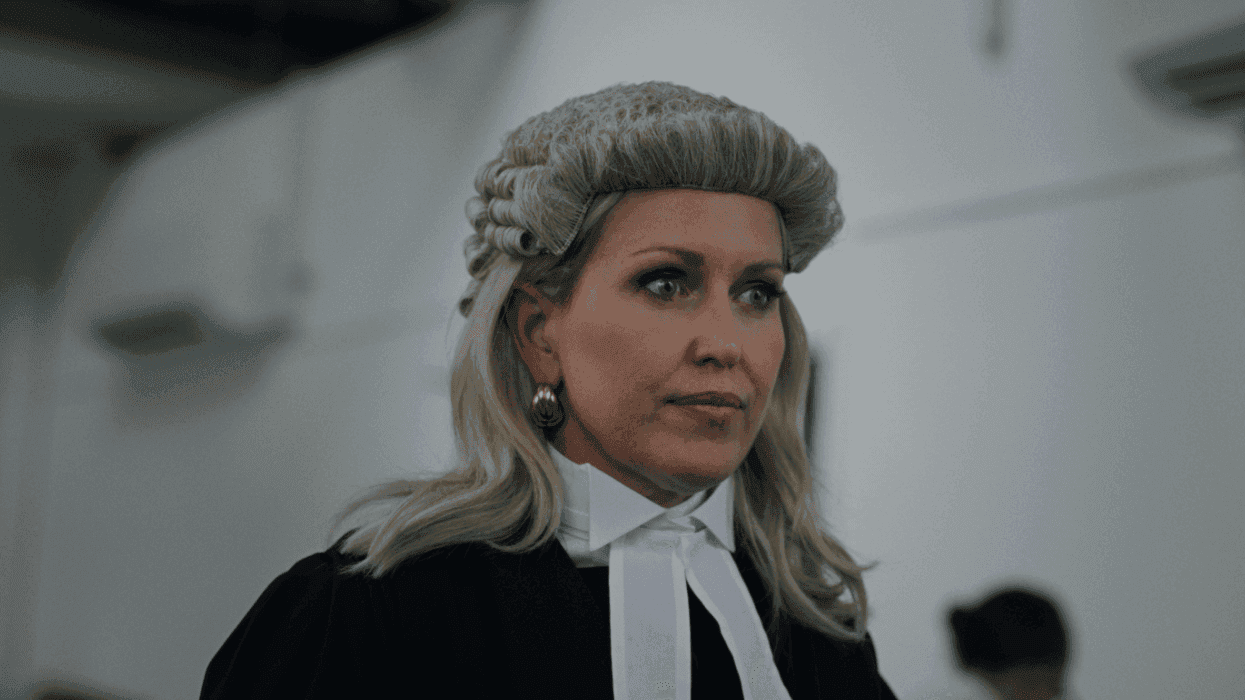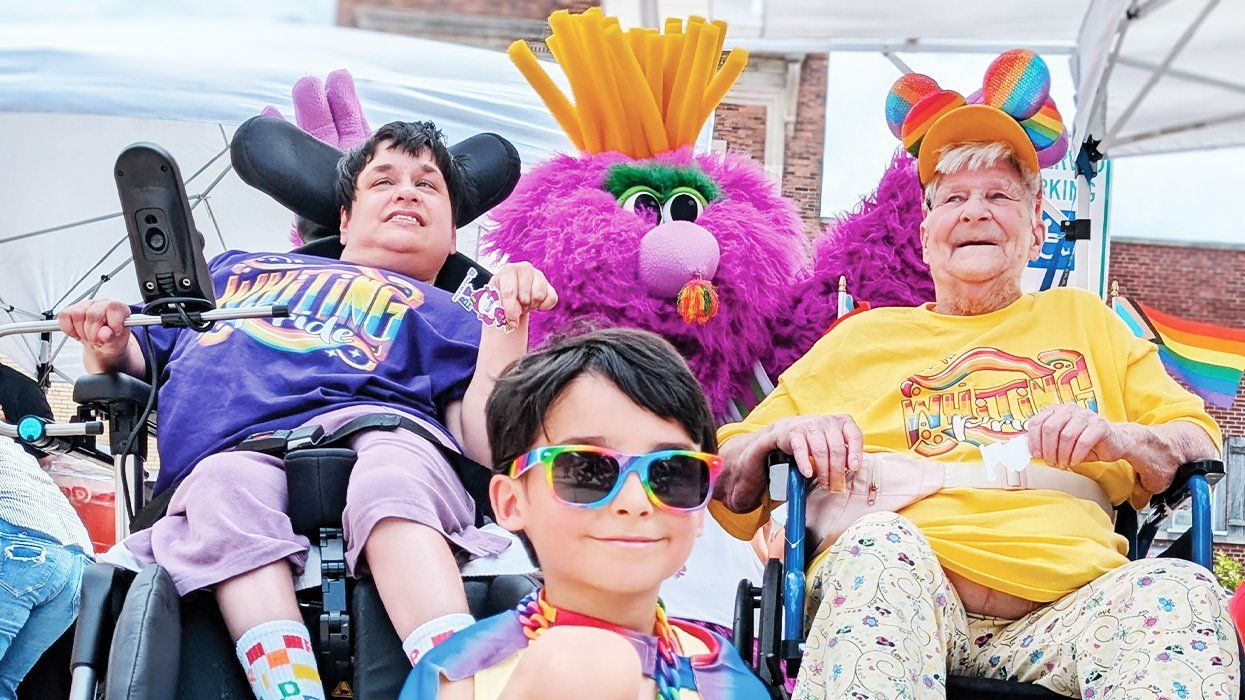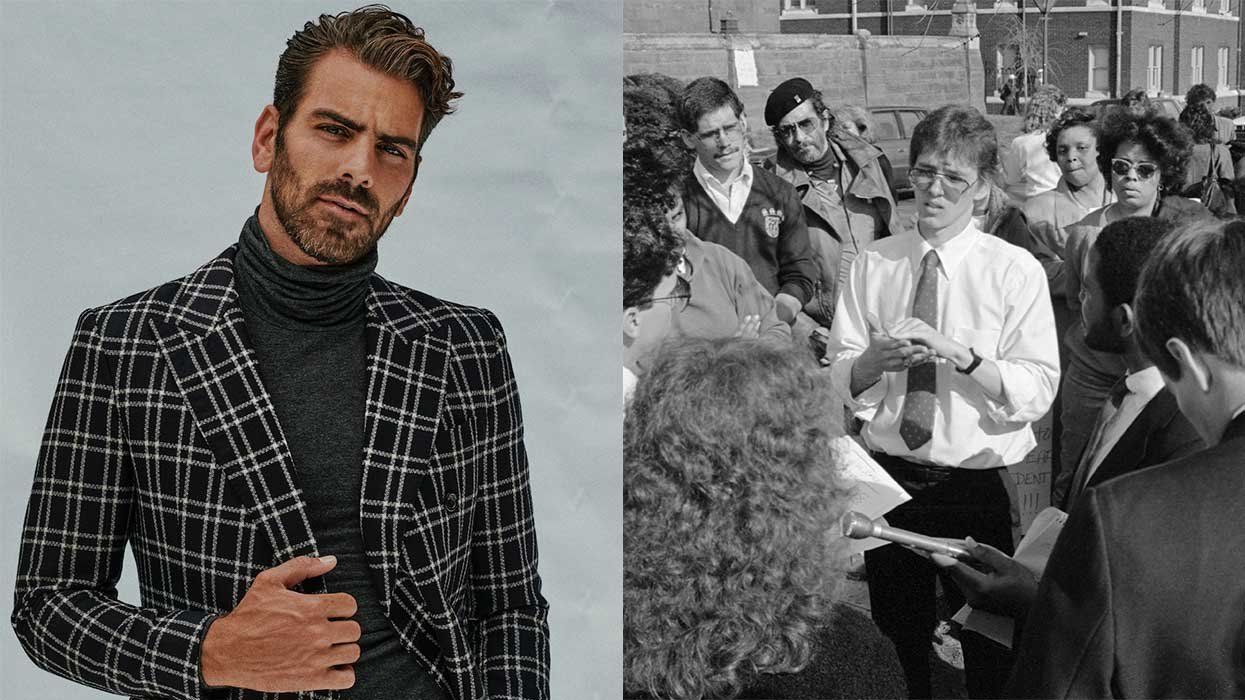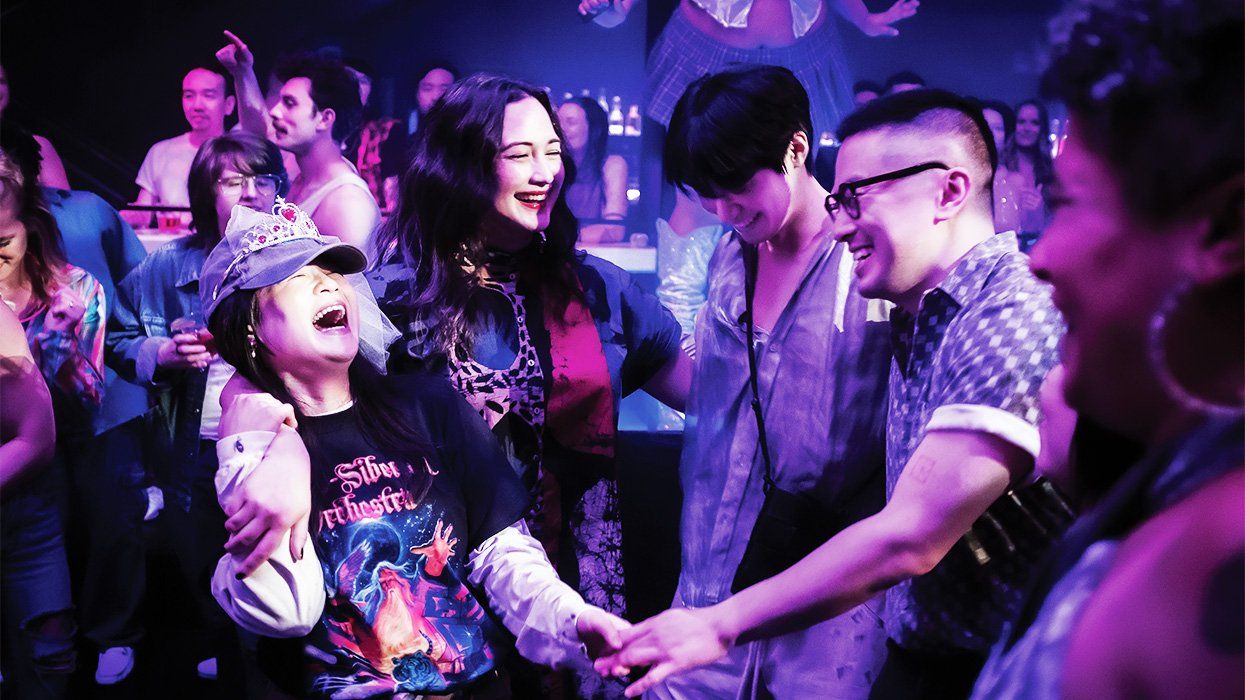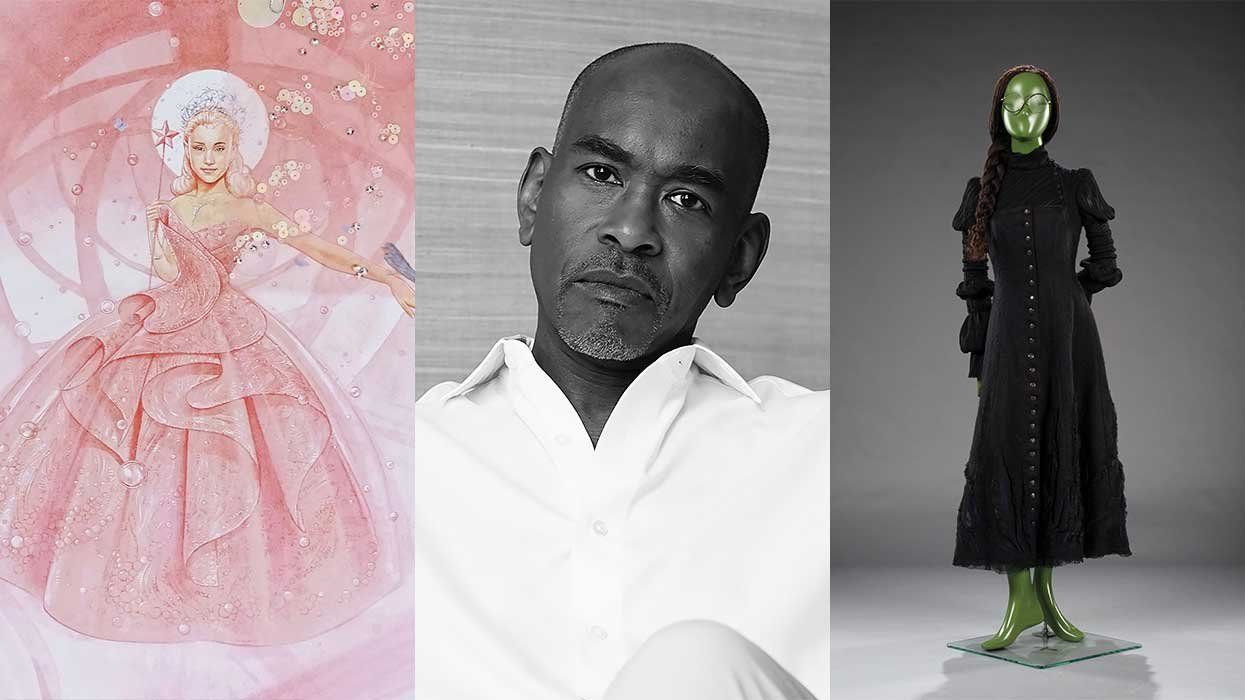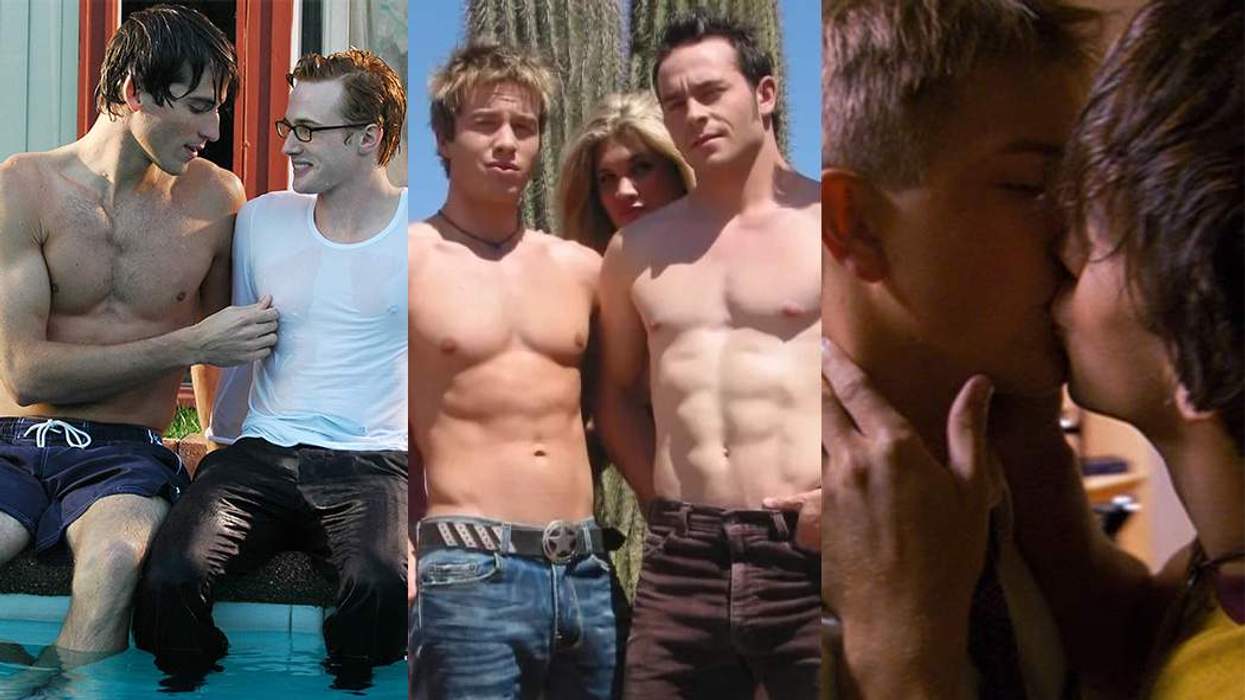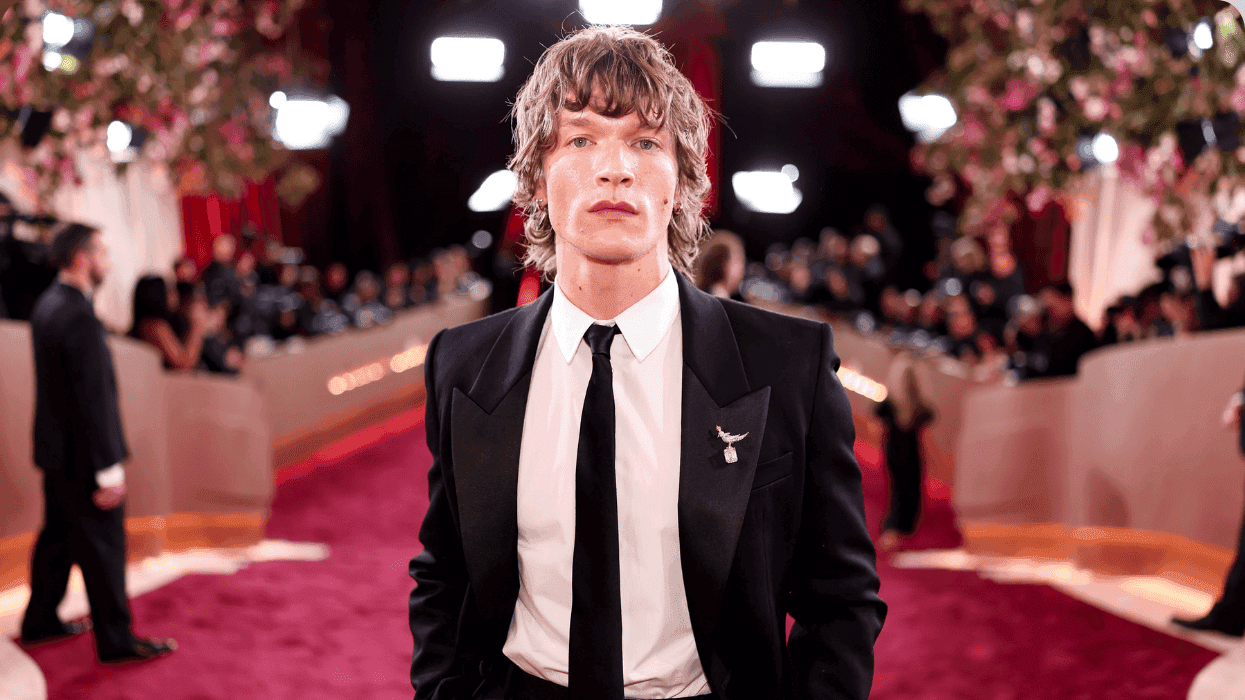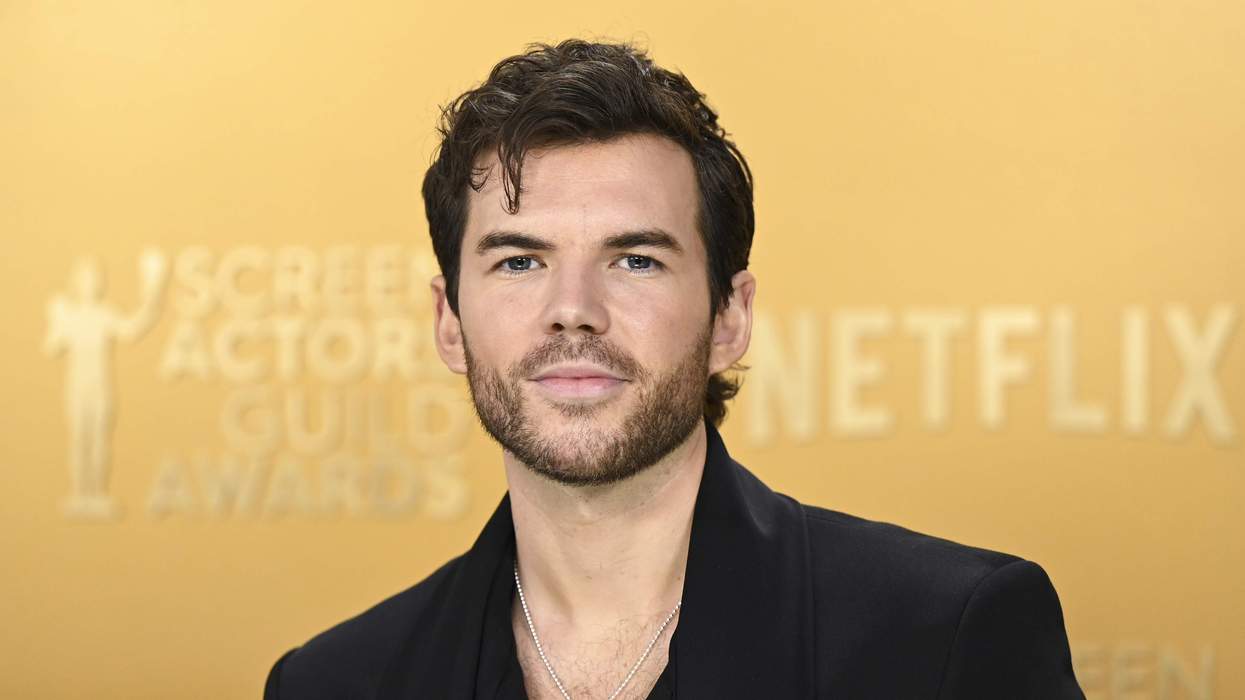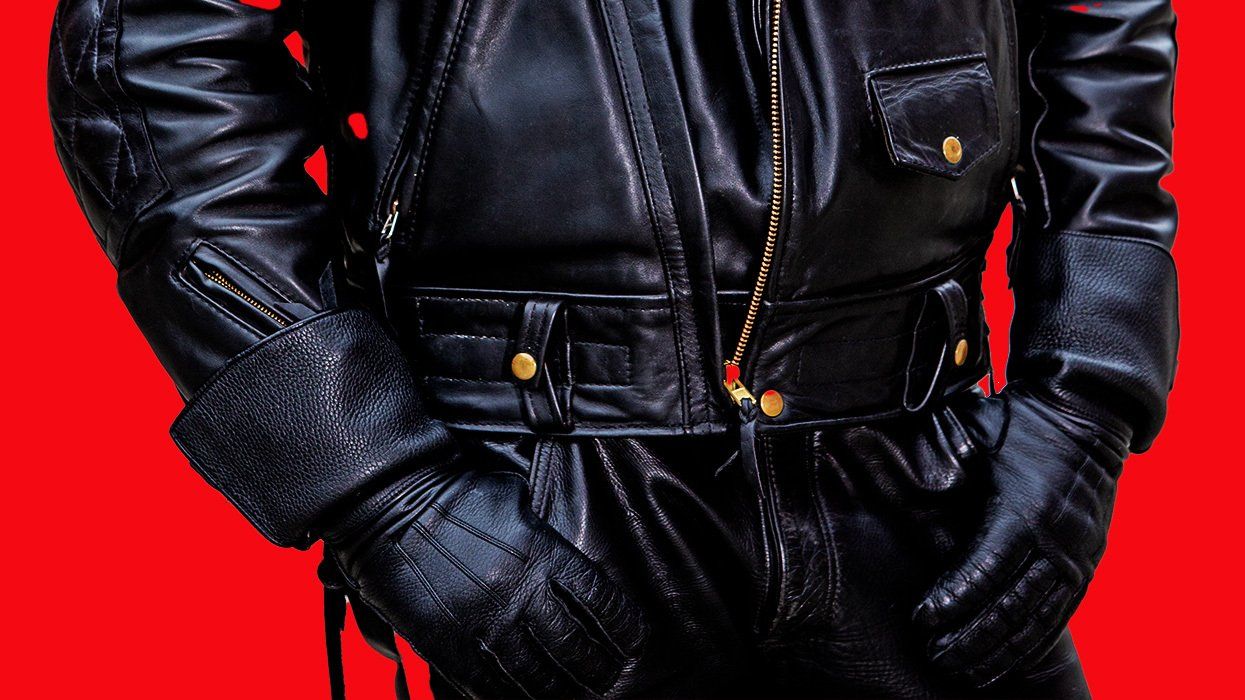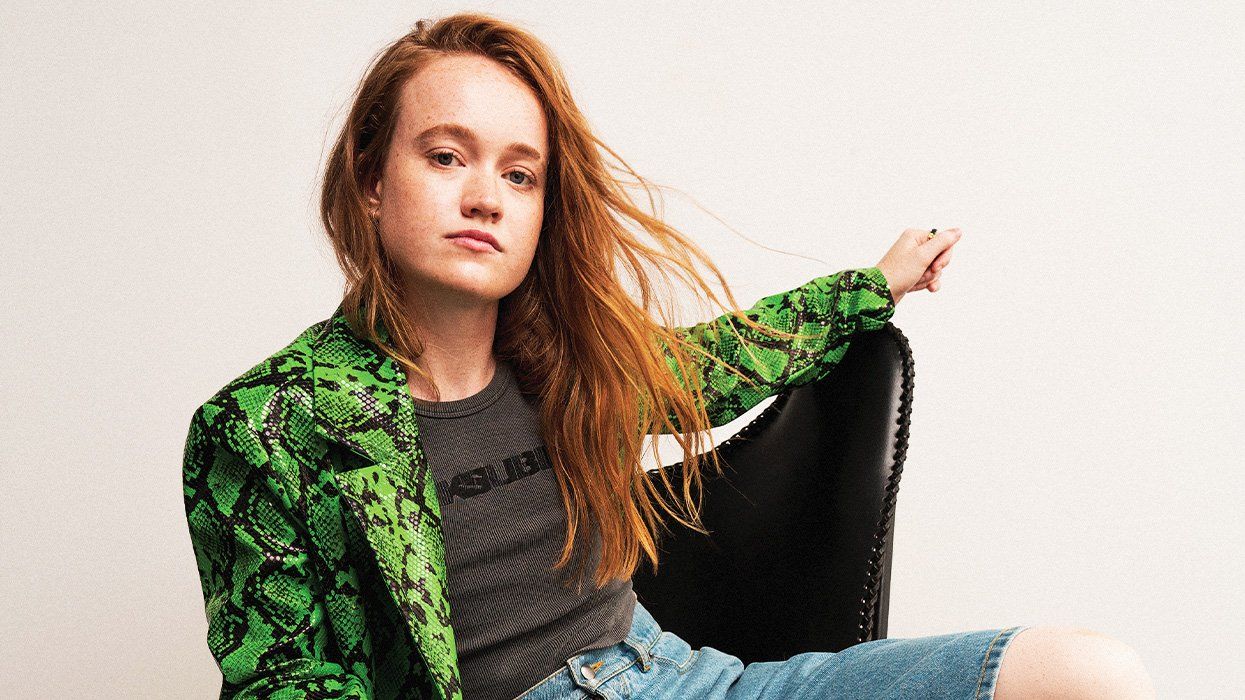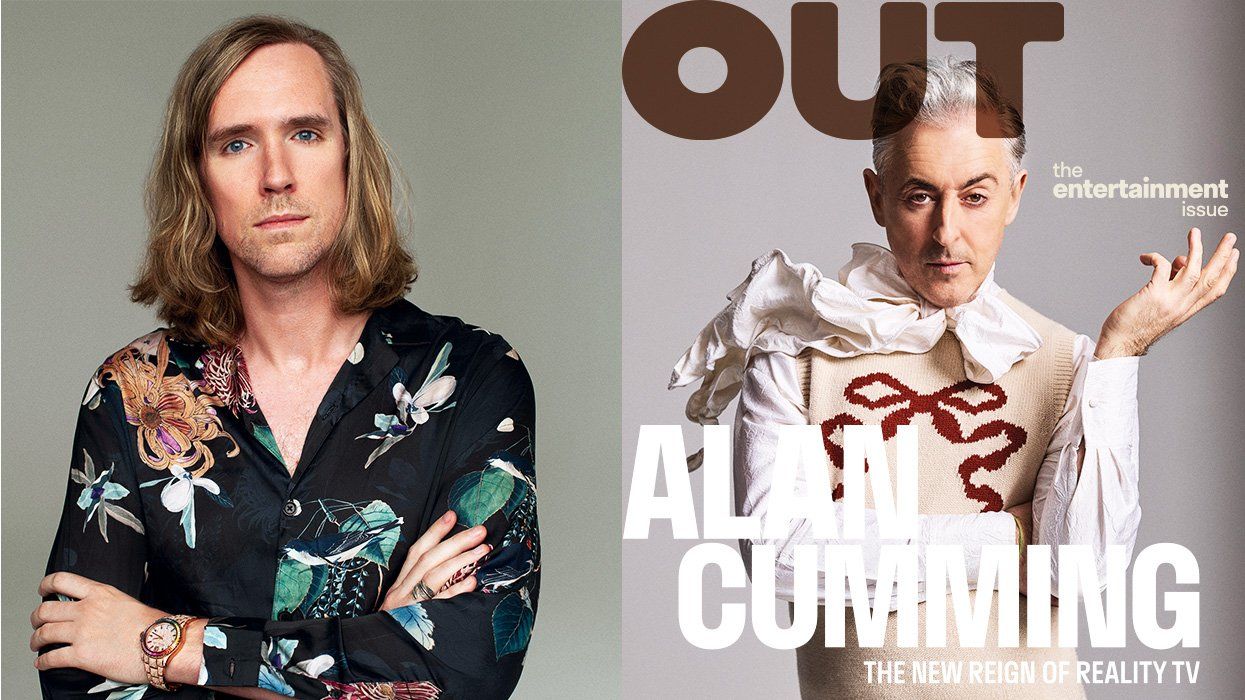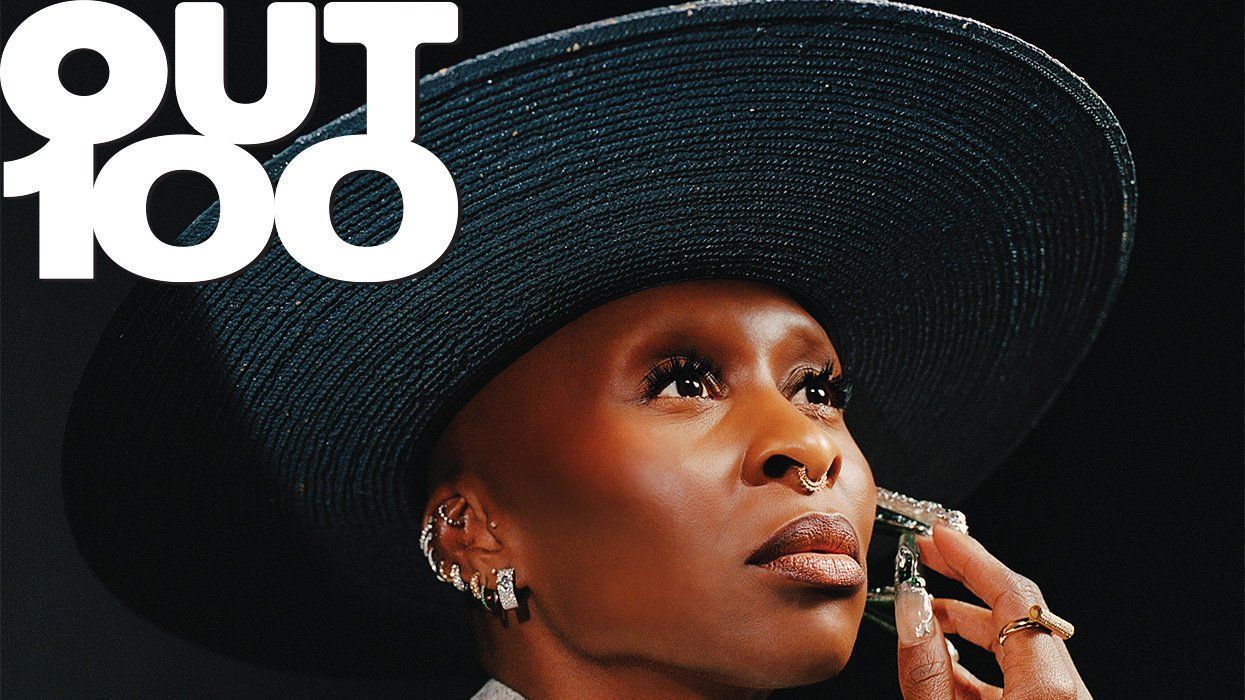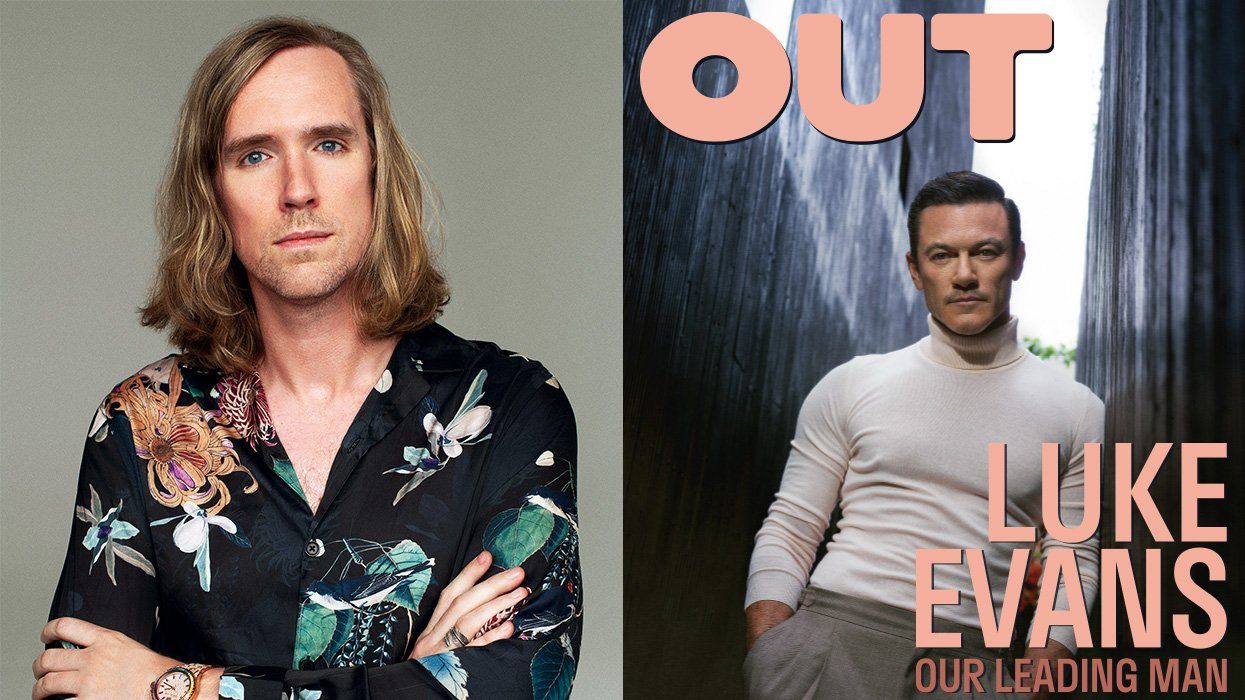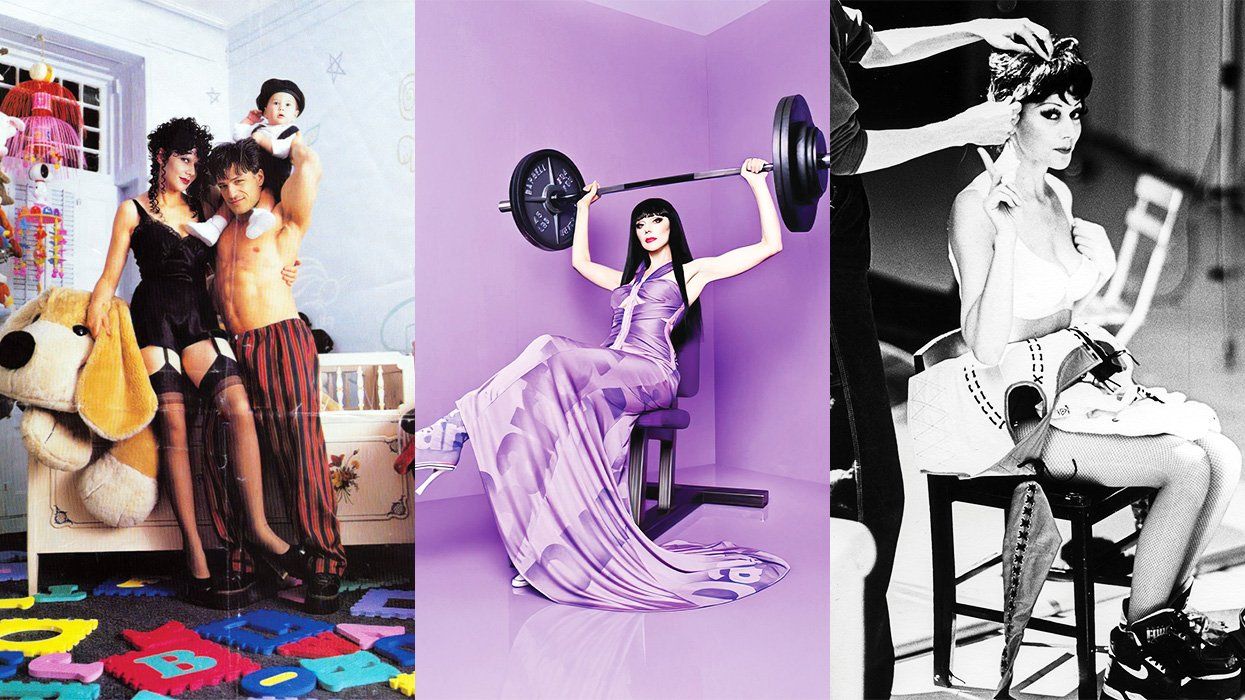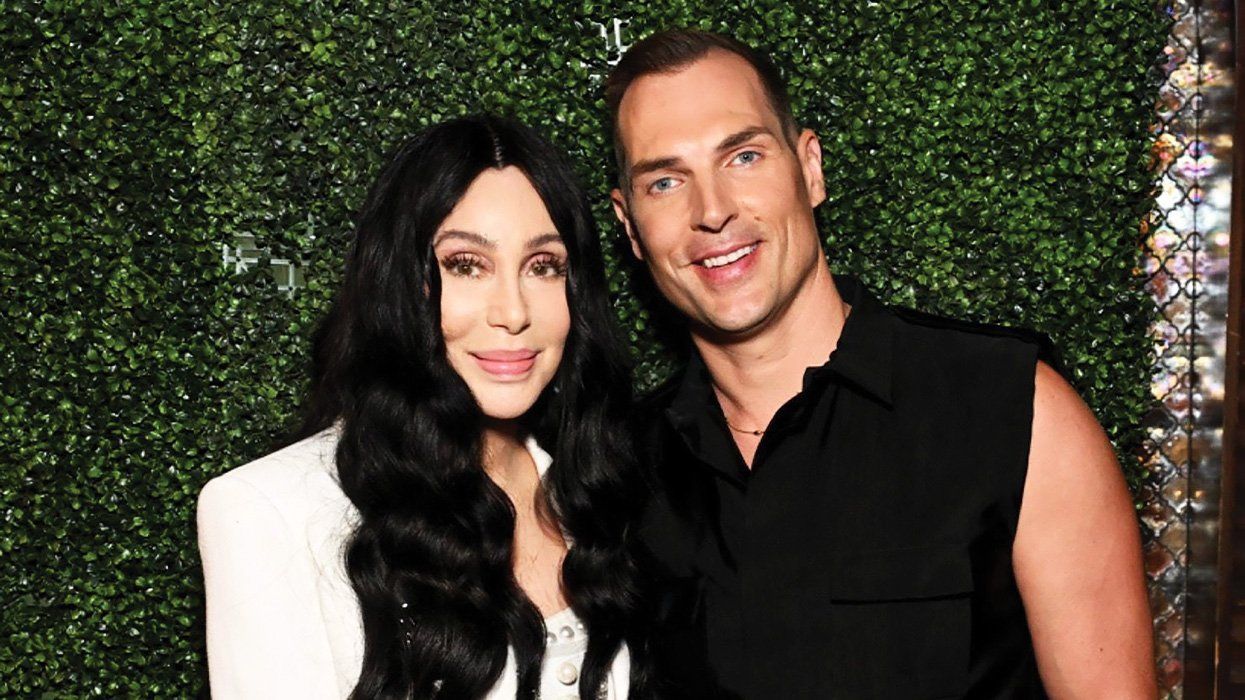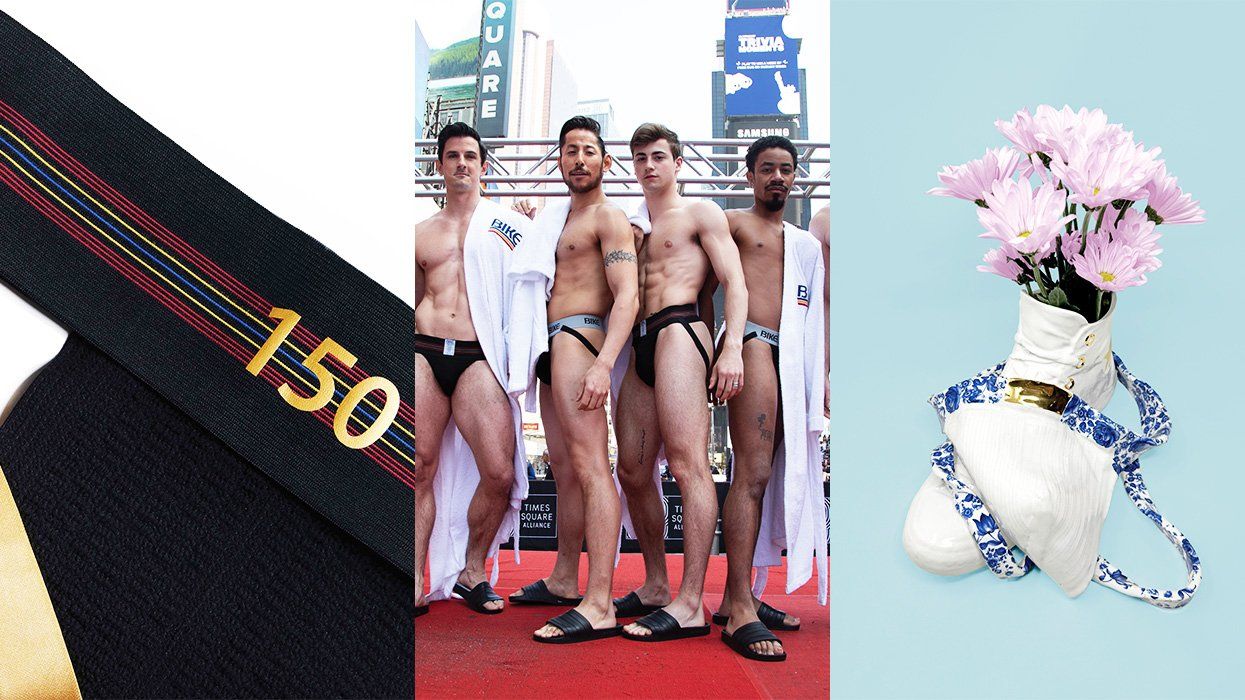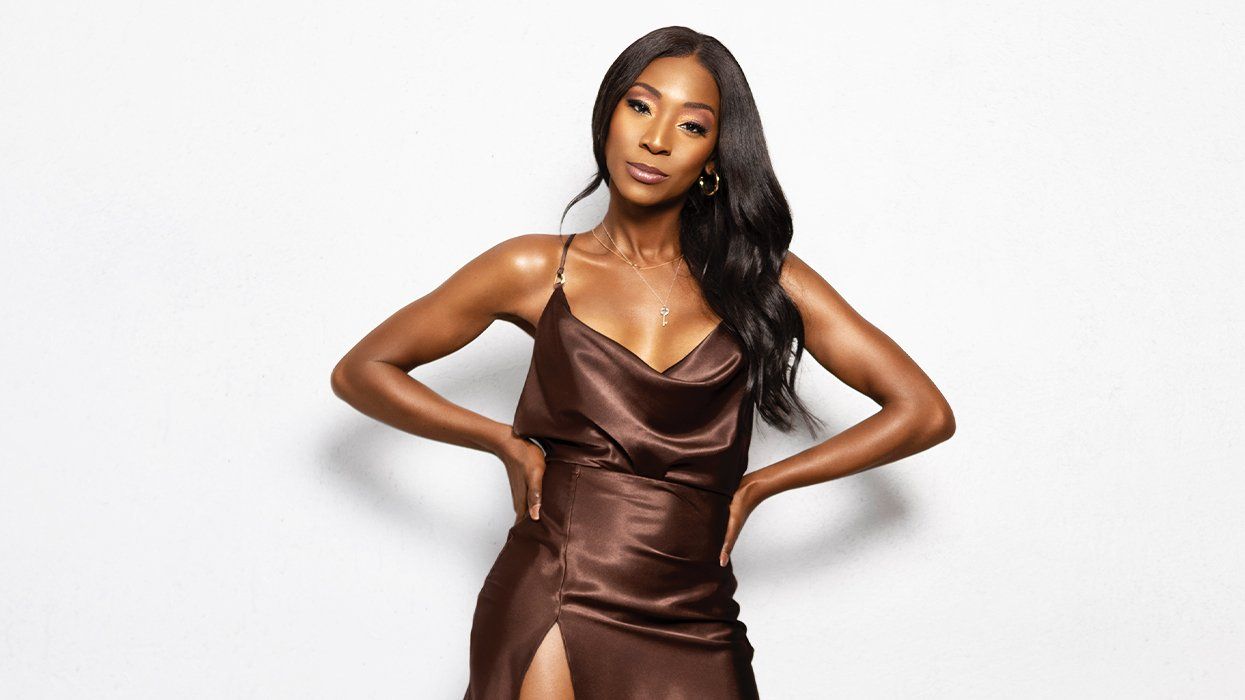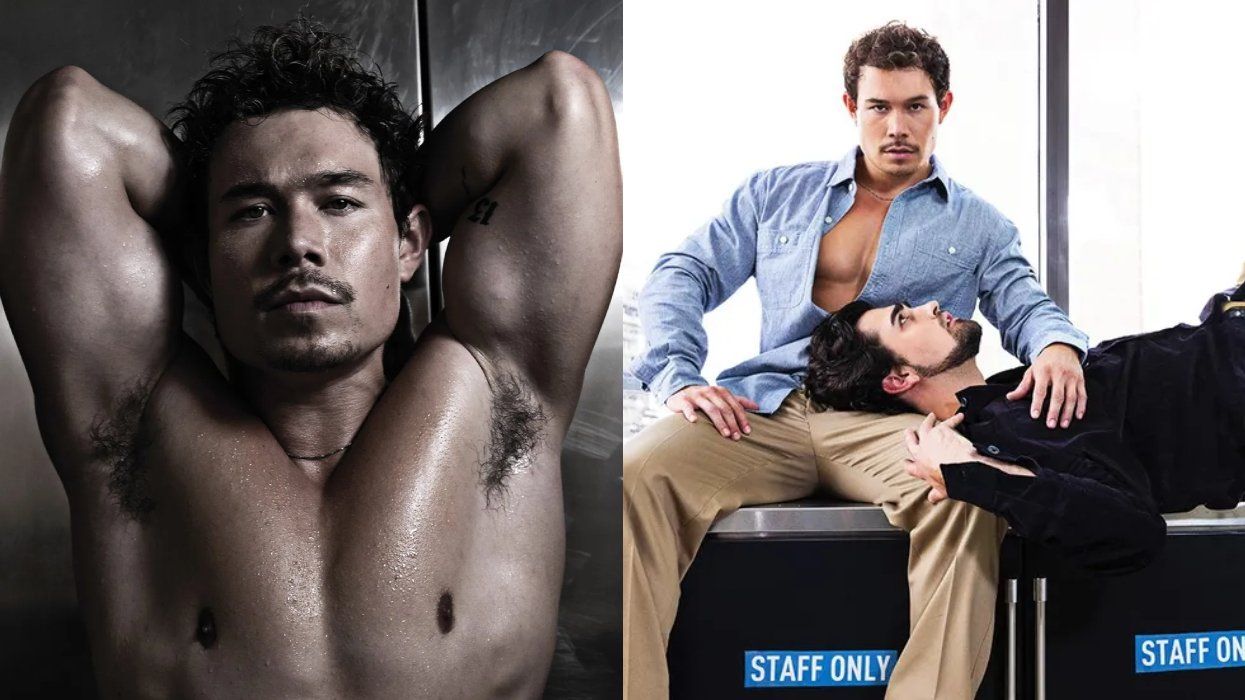In her first queer role since Carol, Cate Blanchett stars as Lydia Tar, a renowned, egomaniacal, and wildly charismatic conductor whose sexual predations finally ruin her. It's the first film from director Todd Field (Little Children) in 16 years, one he says has long been in the works and that he would not have made without Blanchett. Tar is poised to nab scads of nominations, if not awards this year. But in a year of increased attacks on LGBTQ+ people from legislation to protests at drag queen story hours, is there room for a complicated queer villain, even if she's a towering genius playing in the arena that men built and have thrived in for centuries?
One of Tar's early scenes features Lydia in a highfalutin chat onstage with The New Yorker's Adam Gopnik about her storied rise. The far-flung topics include her role as one of classical music's few women conductors (although she prefers her gender be left out of the discussion), her EGOT status, her mentor Leonard Bernstein, her immersive work with the Shipibo Conibo people of Peru, and the meaning of time itself.
Exiting the talk, she's approached by a fetching young woman carrying a Birkin bag. The woman is a fan of both Tar's work and the maestro's endless charm. A lesbian with a wife and child back in Berlin, where she leads the city's orchestra, Lydia sizes up the woman and praises the bag before the fawning devotee drops that she's a Smith College alumna.
As Lydia feeds on her admirer's interest, her assistant, Francesca (Portrait of a Lady on Fire's Noemie Merlant), looks on with a knowing eye roll. She's seen this dynamic before. A character akin to the masochistic assistant in queer filmmaker Rainer Werner Fassbinder's lesbian classic The Bitter Tears of Petra von Kant, Francesca is Lydia's mentee who's also been that besotted admirer.
It's a delightfully queer moment for Tar's lesbian antihero that offers insight into Lydia's soft spot (and eye) for adoring followers. In a fell swoop, the scene hearkens to Alfred Hitchcock's queerish Marnie while signaling the historically sapphic hotbed that is Smith. Field's use of the handbag as a fetish object conjures Marnie's opening scene where Tippi Hedren's Marnie is seen from behind, her identity obscured. The camera zeroes in on the yellow handbag she carries under her arm, the folds of which have been considered and deconstructed as stand-ins for labia for decades in many a queer and feminist film class at Seven Sisters schools. It's not the only piece of Tar that evokes Hitchcock, and it's no surprise that the bag turns up later in Lydia's Berlin apartment. When her wife, Sharon (Nina Hoss), asks about the new bag, Lydia lies. If the Birkin is an allegory for women and sex, it's an early symbol of her downfall.
To this point in the film, Lydia's predations have not been fully revealed. There's a relish in watching her toy with the obsequious donor to her foundation that elevates young women conductors. One marvels at Lydia's 10-minute dressing down of cancel culture during a Juilliard master class, even if the point she makes to a BIPOC pangender student who eschews Bach and other problematic white male artists is awful. Part of the awe in the scene is Blanchett's mastery of it -- a highly choreographed single tracking shot that's later chopped up and regurgitated online in a takedown video of the maestro (she hates "Maestra").
At first, Lydia comes off as a rake, a lothario having it all. And the audience is on her side. That is until she's revealed to be more insidious. The cracks in her veneer begin to show. She gaslights Sharon (a virtuoso in her own right as the first violinist in the Berlin Philharmonic) about her medication and lies about how she came into the possession of said Birkin bag. She bullies a child who bullied her daughter.
In an egregious moment of unfettered lust and narcissism, Lydia manipulates the entire orchestra to spotlight and later seduce a young Russian cellist, Olga (Sophie Kauer). It's enthralling to behold as Lydia and Blanchett play the orchestra. Most damning is the revelation that she's preyed on her young female students and spat them out when they no longer serve her. One student, Krista Taylor (Sylvia Flote), who's eventually spurned by Lydia only to have her mentor ruin her career by failing to recommend her for a job, dies by suicide. Krista's death leads to Lydia's unraveling and eventual undoing.
Since the film's release in October, Tar has divided audiences, its virtuosity notwithstanding. Blanchett's performance has been hailed as the finest in a career that includes her acclaimed roles in Elizabeth, The Aviator, Blue Jasmine, Carol, and Manifesto. Critic Richard Brody's dyspeptic review for The New Yorker called it a "regressive film that takes bitter aim at so-called cancel culture" while Ann Hornaday's Washington Post review subtitles the film "a seductive deep dive into a woman's unraveling psyche."
Field's film presents a deeply subjective world that has Lydia scurrying down a rabbit hole of paranoia about her transgressions when no one is watching. The viewer is left to discern if the film is, as Brody asserts, a takedown of important topics including the #MeToo movement. Some have said the film is a lazy inversion of gender norms, with Field problematically making his lead not only a woman who acts like a man (although he said he wrote it with Blanchett in mind). But it could also be read as a Rorschach test for viewers to mine their views of cancel culture, power, and genius.
Regarding gender, Blanchett, like Lydia, prefers that the fact she's a woman isn't the focal point of how she's viewed. "I never ever think about my gender until it's brought up to me as a defining characteristic or a door is closed in my face because of it," Blanchett says. "And I think that Lydia, and I hazard a guess, Sharon too believes in the power of being the exception."
But Lydia isn't just a woman doing horrible things. She's queer. And a predatory lesbian at that -- the age-old Hollywood trope that had Barbara Stanwyck seducing pretty young things in Walk on the Wild Side and a butch prison guard tormenting a hapless young inmate in Caged. In her rarefied world, Lydia's sexuality is secondary until it's not, when her predations come to the surface. And Blanchett says Lydia prefers the moniker of musician/artist above all.
"I'm a musician," says Blanchett, speaking in first person as her character. "I don't want to self-identify via my sexuality or my gender first and foremost, in the way that men don't necessarily have to within the traditional confines of the classical music world. It wasn't particularly remarkable that it was a same-sex relationship. It just was what it was."
At a time when respectably coupled queer characters have proliferated in films like Bros, Spoiler Alert, and any number of Christmas rom-coms from Lifetime to Netflix, Lydia is viewed by many as a queer villain, like those Hitchcock villains of yore -- from Rebecca's Mrs. Danvers to Strangers on a Train's Bruno.
Like those queer villains from the classical Hollywood era who were imprisoned, died, or forced to live, as Carol Aird would say, "against their grain," Lydia pays a price, losing everything that keeps up her facade. By Tar's close, her world of private jets and suites at the Carlyle morphs into cab rides and a stay at her humble childhood home. Her reputation is sullied, Sharon leaves her, she loses her child, and she's reduced to recording the soundtrack for a fan-favorite video game.
Like Field's subjective universe, which is also partly a gothic ghost story questioning the reality of Lydia's point of view, it's not clear that Lydia is a villain. She may be a product, albeit a dangerous one, of her tone-deaf environment, one who loses touch with what she once loved.
"Somehow in the relationship with Nina, they're slightly estranged from the thing that got them together in the first place, and Lydia herself is estranged from the why, and I think that's [with] a lot of things," Blanchett says. "You don't have to be a musician to understand that particular experience at the moment and that we all feel slightly outside ourselves."
Mitigating factors for Lydia's predations and the debate over if she's a "villain" in the truest sense aside, she's a troubling queer character on the big screen at a time when LGBTQ+ viewers have yet to see enough positive images of themselves on-screen. Although, what the tipping point of enough queer characters is yet to be revealed. According to GLAAD's 10th annual Studio Responsibility Index, 2021 saw a drop in representation of LGBTQ+ characters in films. Last year's Academy Awards had Benedict Cumberbatch and Kodi-Smit McPhee nominated for roles as ethically questionable queer characters in The Power of the Dog (Penelope Cruz was nominated for playing a queer character that was mostly nonproblematic in Parallel Mothers). Olivia Colman won an Oscar for her Queen Anne in 2018's The Favourite, hardly a villain, but she was manipulative and solipsistic nonetheless.
Blanchett and her costar Rooney Mara were nominated for Oscars for Carol in 2016. While the film is beloved by many, a contingent of viewers read Carol -- an older married socialite who actively courts a young shop girl -- as a predator rather than as a survivalist. They see a queer woman in an era where everything had to be played close to the vest and other queers were few and far between.
In her memoir, In the Dream House, about an abusive queer relationship she endured, author Carmen Maria Machado touches on queer villainy. "I should be indignant about Rebecca, and Strangers on a Train, and Laura, and The Terror, and All About Eve, and every other classic and contemporary foppish, conniving, sissy, cruel, humorless, depraved, evil, insane homosexual on the large and small screen," Machado writes. "And yet, while I recognize the problem intellectually -- the system of coding the way villainy and queerness became a kind of shorthand for each other -- I cannot help but love these fictional queer villains. I love them for all of their aesthetic lushness and theatrical glee, their fabulousness, their ruthlessness, their power. After all, they live in a world that hates them. They've adapted; they've learned to conceal themselves. They've survived."
As with Tar, there are no easy answers to whether queer viewers can or should abide another questionable LGBTQ+ character after a century of mostly villainous portrayals on-screen. But there's also no denying their delicious appeal. Even as Lydia spirals poco a poco, she's magnetic. As Lydia spouts to the class at Julliard, "The narcissism of small differences leads to the most boring conformity."
This article is part of Out's January/February 2023 issue, out on newsstands February 7. Support queer media and subscribe -- or download the issue through Amazon, Kindle, Nook, or Apple News.
Related | Spoiler Alert's Jim Parsons & Ben Aldridge Know a Love Story's Power


